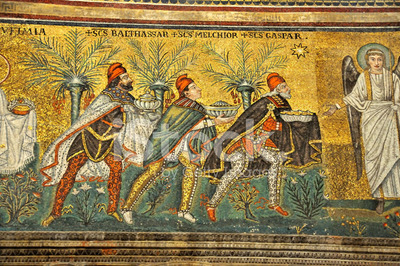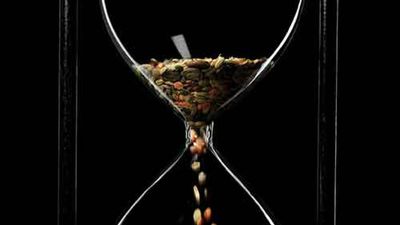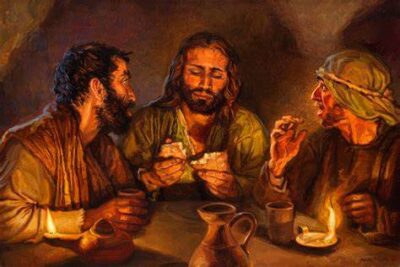January 7, 2024
|by N W
|
0 Comments
|
Christmas, Family, Guest Celebrants, Hope, Light, Scripture, St. Joseph
The Epiphany of the Lord
January 7, 2024 — Year B
Readings: Is 60:1-6 / Ps 72 / Eph 3:2-3a, 5-6 / Mt 2:1-12
by Rev. Dan Kelly, Guest Celebrant
In the first reading that we heard today, we heard Isaiah say “Rise up in splendor, Jerusalem. Your light has come.” This is really important to us on this feast of Epiphany. “See, darkness covers the earth, and thick clouds cover the peoples.” We can also see that too, in the turmoil we find on earth today: the wars, the sadness, the destruction, even in our own country where there is intolerance and all kinds of violence, breaking into stores and wreaking all kinds of havoc. But we find in that first reading, “Nations shall walk by your light, and kings by your shining radiance. Raise your eyes,” Isaiah tells us, “And look about; they all gather and come to you.”
This first reading is a sign of hope for us, and there are other signs of hope that we have. I’m going to remind you of some things that I don’t think the children have ever heard.
When I was a youngster, growing up in a certain town, there was a planetarium. This particular planetarium was in a science museum, called the Franklin Institute, and that was the Fels Planetarium. My mom and dad took all five of us sons (we had no sisters) when I was just a young lad.
The first thing that we saw when we went into the Franklin Institute was a huge ball, hanging from a cable rising five stories high to the dome at the top. That ball was slowly moving back and forth in slow circles. It was a pendulum. There were little pegs all around a circle set up at the bottom of this huge ball, which probably weighed close to a ton. At the bottom of the ball there was a little peg, like a little spike, hanging down, and that ball would swing over and knock down the pegs. It would knock down a peg twenty-four times; every hour it would strike down another one until twenty-four hours had gone by. Early in the morning, workmen had to come out there where all the pegs had been knocked down. They had to stop that ball – Maybe it took four men to grab hold of it and slowly stop it. They would set up new pegs, and then let it go. Thus it marked the hours of the day and the rotation of our earth on its axis. It was a wonderful visual sight to see, and as a child, I was utterly amazed.
Now I’m going to move you on in that same Franklin Institute to another place. There was a huge theater, and this theater was domelike, larger than our church, and it had seating all around it, with a projector. That projector would shine onto the ceiling above, and form sights in the sky. The astronomers and technicians could display anything that they wanted to show. So, you went in there and took your seats, and everyone was chatting, just like we do coming into the church, chatting in the foyer. And then we get into church, and then we’re quiet because we’re meditating. And then the lights start to go dim. The lights in the enormous dome would continue to get dimmer until it got so black you couldn’t see the hand in front of your face. Those experiences were meant to draw attention to something special. One of the announcers would say, “You can’t see your hands. It’s like nothingness.” So, you might wonder what the universe was like.
We were visiting the planetarium in that season between Christmas and the Epiphany. They had decided to put up the sky as it might have appeared when those first pilgrims from other countries – the three Magi – were following a star. They began to explain that, and then you would see the stars appear within this dome, with one star moving very slowly. They would recount the events as described in the Bible, and it brought home to us, not only the enormity of the universe, but also a fact of our own faith that we are living by.
We know who those three pilgrims, those Magi or kings or philosophers were. They might have been studying all kinds of things. They came from other countries; we don’t know where they came from, as the Bible doesn’t tell us that. But sometimes our Nativity scenes may show one from Ethiopia, another from Persia, and another from Arabia. We don’t know all that, but they did not work together until they met on a similar type of pilgrimage. They were all seeing this star moving that they had not seen before. After all, they were astronomers; they were philosophers, and they knew what they were looking for.
Later on (not found in the Bible), names were given to them: Balthazar, Melchior, and Casper. They went to King Herod, who was in charge of that whole area, because they wanted to find out if he knew anything. They had heard that there was a new king to be born, and they were following his star. As we read in Holy Scripture today, they were overjoyed at seeing the star and stopped at the place where the child was. Herod said, “Oh, this is wonderful news. Go and find out where he is and come back and report to me so that I may go and worship him, too.”
King Herod was not a good man; he was a very evil king. He was jealous, he was threatened that there was another child to be born who might be king of all this land. Why are we celebrating the feast of the Epiphany? You might think that, next to Christmas, it couldn’t be too important. Epiphany is like we heard from Isaiah in the first reading today: The light will shine down upon you.
They went and found the child, and it is said they prostrated themselves before the child. Now, if we look at our manger scene, we see the three kings. We see the scene there, but we don’t see them prostrated. We know what “prostration” is. Prostration is when you lie down flat on your stomach, head down, feet down. The only time we see a prostration in our liturgy in the Catholic Church is on Good Friday, when the Passion is being read. The priest comes in, and, if there’s a deacon with him, the deacon will join him. And the priest will prostrate, lay flat down, on Good Friday before the Passion is read, and meditate for a few moments. It’s quite a dramatic, silent scene.
So, we have this story and the image that we have from today. They arrived in Jerusalem, but then were warned in a dream, as we heard in the gospel, not to return to Herod. What did Herod do? You know, after Christmas, we have two feast days, days of martyrs. The first day after Christmas is the martyrdom of Saint Stephen, the first martyr. And then the next is the Feast of the Holy Innocents. Because what Herod did was, when the Three Magi didn’t return to him, he ordered his soldiers to go and kill (terrible thought!) every baby boy two years of age or younger. I don’t want to bring horror to you. I want you to know what evil is; what the killing of the innocents is. The Church even helps us to meditate upon that, and we read about that in Scripture. There must have been a wailing throughout that area of mothers and fathers as soldiers went through, taking these baby boys. Why? Because Herod did not want a king to come in his place.
We celebrate that the infant king Jesus survived. God sent the archangel Gabriel to help with this. We have four archangels. You remember three of them: Raphael, Gabriel, Michael, and the fourth one, who didn’t turn out so well: Lucifer. It is Lucifer who was driving the madness of King Herod.
Gabriel is the one who appeared to Mary many months before the birth of her child and said, “You are going to have a child.” Mary is only engaged. She’s planning on her marriage to Joseph. She says, “How can this be, because I don’t yet have a husband?” Joseph was going to quietly divorce her, so that there wouldn’t be any scandal. But then, during his sleep, the angel Gabriel, a very busy archangel, woke up Joseph and said, “Joseph, do not be afraid to take this child into your home to be your wife, because the child is a gift of God, a creation of God, the Holy Spirit.”
Later on, a child is born, and then Herod is letting out the order to kill all these baby boys less than two years of age. The angel Gabriel comes to Joseph again, the father of that family – foster father – and says, “Quick, take the baby and his mother and go to Egypt, a distant country. Go to Egypt and stay there until I tell you to come back.”
We know approximately when Joseph, Mary and the child Jesus left Egypt and returned on this long, long trek back to Nazareth. They had left Nazareth, gone to Bethlehem so that Joseph could register and pay his tax, and that’s where the baby was born. Then they went further away from Nazareth and Bethlehem to Egypt. Do you know when they came back? It was seven years. How do we know that? A lot of research was done many years ago, and it was seven years simply because that’s when the threat was gone: Herod died.
We know, unfortunately, that Herod’s death is not the end of the evil that happens, but it’s the starting of a new life. Joseph, Mary and their young son now about seven years of age, started their long trek all the way back from Egypt, trekking back through Bethlehem, passing by Jerusalem, and the other sixty-five or seventy miles more to get up to Nazareth, to live out their lives, where Jesus would learn by going to synagogue.
When I was young, my father and mother took us to that planetarium. Later on, I became interested in joining the Boy Scouts, but there was no scouting in the parish where I lived in the city. My good friend, says, “You could come and join the Sea Scouts.” Well, I knew very well there were Sea Scouts around. They were not as plentiful as the Boy Scouts. But after all, at that time my brother was in the Navy, my father had been in the Navy in the First World War, and so, I said, “Yeah, that’s a good idea!” I went up there and, on the Delaware River, there were about thirteen – we called them “ships,” and they were the bunkhouses for each group of boys who were in the Sea Scouts. We learned all kinds of things nautical. Once a month Rabbi came and gave us wonderful readings from the Scriptures, from the Bible, and gave us animated talks that young boys would really need growing up: how to behave, how to have fun, how to be good sons to your parents and good brothers to your brothers and sisters.
So, those were some experiences that I had growing up, and it all started with a memory of a father and mother who wanted to take their children to this particular museum, years ago when I was still a little pup, amazed at the pendulum, and amazed at the sky shown in that theater on a feast of the Epiphany.
KEEP READING
 540-586-8988
540-586-8988 










